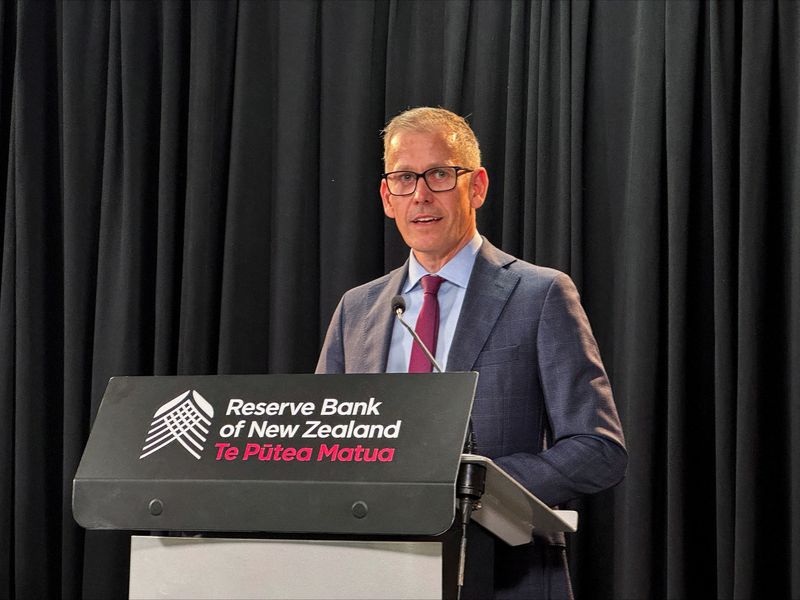New Zealand’s new central bank governor to face credibility test
By Lucy Craymer
WELLINGTON (Reuters) -New Zealand’s finance minister is expected to announce a new central bank chief in the coming weeks, with economists hoping the move will signal the end of a tumultuous period in which both the bank’s governor and chairman unexpectedly departed.
Whoever takes the reins of the Reserve Bank of New Zealand faces a tough task: repairing the reputational damage done by a deep downturn in the economy, while defending the bank’s independence from a critical government.
“We face a test of trust and confidence in us as an organisation,” interim Governor Christian Hawkesby said in a speech earlier this month.
“I want to assure you that we are resolutely focused on our mandate of delivering low and stable inflation in the medium term, and a resilient and enabling financial system,” added Hawkesby, who has confirmed he wants to remain in the job.
Former governor Adrian Orr sometimes wrong-footed financial markets with policy decisions and shocked them by resigning suddenly in March following a dispute with the government about punishing cuts to the central bank’s budget.
The controversy eventually claimed the scalp of the RBNZ’s chair Neil Quigley, who oversaw operations at the bank. Finance Minister Nicola Willis said she would have asked him to resign if he had not quit.
The centre-right government has become more vocal in other areas, with Prime Minister Christopher Luxton publicly saying he had told the RBNZ what he views they should do with interest rates.
Such pressure, reminiscent of what the U.S. Federal Reserve is facing, is unusual for the RBNZ, whose independence has largely been respected by previous governments.
“In the past, central banks (globally) were largely left alone to do that, but now it’s becoming more challenging,” said John McDermott, who was chief economist at the RBNZ until 2019.
“Some politicians just want to take over… and there’s been an element of that in New Zealand as well,” without elaborating.
McDermott, who heads economic and public policy institute Motu, has been named by some local media as a possible applicant for the role. He declined to comment on the reports.
IN A STATE
The brace of resignations cap a difficult few years for the once highly regarded central bank.
The bank has faced criticism for abetting a surge in inflation by pumping billions of dollars of stimulus during the COVID-19 pandemic. It was then forced to engineer a recession with high interest rates to get prices back under control.



Leave a Comment
Your email address will not be published. Required fields are marked *